
stnic.190807.001.001.jpg
Famous Indian Chiefs
XIII. WINNEMUCCA, CHIEF OF THE PIUTES
LIKE the great Montezuma of old Mexico, Chief Winnemucca, who was born and lived the most of his life beside Pyramid Lake, Nevada, had a thinking mind and a large, warm heart. He was chief of an Indian tribe called the "Piutes," and before any white men came over the Rocky Mountains to disturb them there were several thousand Indians to whom he was like a father. He saw to it that they had plenty of good food to eat, nice furs and skins to wear, and handsome tepees (or wigwams) for their families to live in. He had a good wife and many children of his own; he was always very kind to them, and took much pains to teach all he himself knew to his eldest son, who was to be Chief Winnemucca after him.
Seventy years ago the Piutes were a peace-loving and contented people. They knew how to gather in the swift antelopes from the plains, how to catch the deer and ensnare the wild turkeys, and help themselves to all the game of the mountains round about their broad valley and clear lake in which they caught splendid speckled trout and other choice fish. The Piutes never appeared to be as shrewd and smart as the Snake Indians, and they were not warlike; yet with their bows and arrows they did drive off the thieves that came from their Indian neighbors, sometimes, to hunt in the mountains or fish in the lake.
Chief Winnemucca taught the Piutes very different lessons from other Indian chiefs; for example, to love peace and make constant effort to keep it; always to be kind one to another; always to tell the truth, and never to take for one's self what belonged to another; to treat old people with tender regard; to care for and help the helpless; to be affectionate in families and show real respect to women, particularly to mothers; yet he and his Piutes had no books, no writing, no chairs, no furniture, almost none of those common articles that make our houses so comfortable. Chief Winnemucca, from time to time, had wonderful dreams. One night he dreamed that some people who were different from the red men, would by and by come from the east; that they would be finer people than any he had ever seen, and that their faces would be of a white color, bright and beautiful. He stretched out his hands toward them and said: "My white brothers!"
Some time before the great explorers, Lewis and Clark, crossed the plains and saw Chief Winnemucca's valley, a company of hunters from Canada came. They were usually named "Voyageurs," and were trying to collect precious furs. They hunted and trapped the beavers and foxes or bought skins from the Indians. Then these voyageurs would carry the furs to the nearest trading places and sell them at a good price to white traders.
One day a party of these voyageurs came to a high plateau and, sitting on their hardy ponies, looked for the first time on Pyramid Lake. They were taking in the beauty of the scene when suddenly a few Indians, riding furiously toward them, halted abruptly, and one Indian rode forward, making signs of good-will as he approached. But the hunters were frightened and caught up their guns, though they did not fire. At this the Indian hurried away, joined the others, and they all dashed into the woods and rode as fast as they could straight to Chief Winnemucca's wigwam. As soon as the venturesome Piute, much excited, had told all he knew about the appearance of strangers up there on the eastern plateau, asserting that they were well mounted on large ponies, that they were curiously dressed, and that they surely had white faces, Winnemucca cried out with joy: "They are my white brothers!" and after a few moments, added: "I knew you would come; you are the white brothers of my dream."
Chief Winnemucca hastened with twenty of his Indians to meet the traders. All the
Indians were mounted on little ponies adorned with cedar sprigs and some bright
flowers fastened to their manes and tails. The Indians were afraid and kept
close together, but the chief was happy and rode boldly ahead to meet his white
brothers. Now the voyageurs were full of fear and, firing their guns in the air,
motioned for the Piutes to stop. These unfriendly signs startled Winnemucca. His
heart bled as he saw his men hanging back in terror; but he could not forget his
beautiful dream, so for a while he tried to draw nearer the strangers. They
shouted angrily at him; but he got down from his saddle fifty or sixty yards
away, put his strong bow and quiver of arrows on the ground, and spread out his
arms as a sign of peace; but the white men, believing
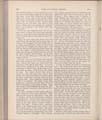
stnic.190807.001.002.jpg him and his followers to be treacherous
because they were wild Indians, would not let them come any closer. Now Chief
Winnemucca had heard about some powder guns which warlike Indians had and he
instinctively recognized these white men's rifles as weapons of war. Greatly
disappointed, he and his party rode back to their pretty village, and next
morning the voyageurs passed on westward. The Piutes never saw them again.
It was not very long after this visit that another party of about fifty white men descended from the same plateau and encamped two miles below Pyramid Lake on the bank of a swift running river.
Again the good chief went down as he had done before and tried his best by peace signs to welcome the strangers, but they would not let an Indian approach them. They even fired from loaded rifles to frighten the Piutes away. This time the Indians saw where the bullets struck the trees and bushes. But Winnemucca, after the white men had gone, reflected upon the cause of the white brother's fear of them. So he said: "I will not give them up, I will show them a brother's heart."
He took a few of his principal men and had them bring with them their women and children. They followed the white men several days and encamped every night in plain sight. At last the white leader, prompted by his guide who knew something of Indian ways, decided that the Piutes meant no harm. Little by little they talked by signs. The Indians showed them how to avoid bad trails and some short cuts in their journey and always led them to the finest camping places where they could have plenty of wood and good water. Every night they brought them a deer or an antelope. The leader of the white people was a generous and good man, so he and Chief Winnemucca soon became friends. After this success, which delighted his heart, the chief and his followers returned to their home on Pyramid Lake.
The next company of white people going toward California were more numerous. With them was the American "path-finder," Capt. John C. Fremont, and he and Winnemucca communicated right away. They first met where the Union Pacific Railway now crosses the Truckee River—called by the Piute Indians Truckee because it means "all right." Fremont took a particular liking to the warm-hearted chief, and he asked him to lead a party of Piute scouts. The scouts consisted of the chief and eleven picked Indian men, and from that time Winnemucca was called Captain Truckee or All-Right. With Fremont, these Indians went all the way to California, and helped him while there in his contests with the Mexicans. They learned after a fashion to speak English, and Winnemucca could always make an American understand him. He was proud of his English, but prouder of a piece of tough paper on which Fremont had written a recommendation of "Captain Truckee." This the chief always called "My Rag Friend."
Chief Winnemucca liked California so much that he decided after much thinking and talking with his people to go back to that beautiful and fruitful land. His son, who was to be the chief, Winnemucca Second, was put in charge of the whole tribe left behind, while Winnemucca took thirty families with him for the long journey. Of his own family he took his wife, his daughter-in-law, and four of her children—they were named by their grandfather a little later : Natchez, Lee, Mary, and Sarah, two boys and two girls. Sarah, who was then six years old, was the youngest, and her grandfather's favorite, and he always spoke of her as "my sweetheart." She was dreadfully afraid of white men, and would hide her face so as not to see them, and weep a long time if one spoke to her. The cause of this terror was that she once heard her father say the Piutes were to have great sorrows and troubles from bad whites.
A Sister of Charity succeeded in winning her heart. The result of this good lady's friendship was that Mary and Sarah learned to speak good English, and for a short term were taken into the Catholic boarding-school, but the feeling against all Indians among the whites was such that they declared they would take away all their children if Indians were allowed to come there. In California Mr. Scott employed "Captain Truckee" and his Indians to care for numerous herds of cattle and horses, and the Indians on their ponies were most faithful and successful herdsmen.
The chief, after about a year in California, heard that the sub-chief (his son, Winnemucca Second) and all the Piutes with him had had great trouble. At first two white settlers on their way west had been waylaid in the mountains, and robbed and killed with arrows. The arrows were left there and had on them the Washoes' marks, but the white people insisted that Piutes and the Washoes were all the same. Again, two wicked white men carried off two little Piute children and hid them. After a long search the two Indian fathers found them in a cellar, bound with cords. The Indians became enraged at this and killed the white men.
Besides, a large party of white people came to Pyramid Lake as others had done
before them.
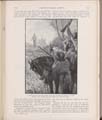
stnic.190807.001.003.jpg It was quite late in the fall
of the year and Winnemucca Second with most of his Indians was away hunting in
the mountains. The Indians had left their winter supply of seeds, nuts, wild [illustration - "Winnemucca put his strong bow and quiver of arrows on the ground, and
spread out his arms as a sign of peace."] onions, and camas, and a large quantity of dried deer-meat and salted
fish, carefully stored away near the Truckee River. The strangers helped
themselves to what they could use, and burned up all the remaining food.
Winnemucca Second became alarmed at this, and when a volunteer company came to punish the Piute Indians for the loss of the white settlers, he and his followers began to lose all confidence in the "white brothers" that his good father had always trusted and defended. So the sub-chief kept all of the Piutes he could get to stay with him in different camps in the mountains.
Hearing all this the old chief left his two grandsons to work for Mr. Scott in
California and, taking with him his daughter-in-law and the two girls, Mary and
Sarah, in a large wagon, guarded by several of his Indians, he drove five
hundred miles back to Pyramid Lake. He sent a
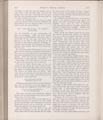
stnic.190807.001.004.jpg messenger to find his son and begged him
to come back to the beautiful valley and have his people come with him. Here
they met the chief, and the wise and good-hearted old man spoke for his white
brothers once more.
Beside the beautiful lake he lived for many years, and when at last he died, he called his son and told him never to forget his duty to his own people and to his white brothers.
XIV. Toc-Me-To-Ne, an Indian Princess
You all remember, in your school-books, the story of Pocahontas. Well, old Chief Winnemucca had a grand-daughter who was a sort of Pocahontas of our own time, and whose story deserves to be told in this series; for as old Powhatan's life-history would be altogether incomplete without that of Pocahontas, so Winnemucca's must include that of his grand-child, Toc-me-to-ne.
We called her Sarah Winnemucca, but her real name was Toc-me-to-ne, which means shell-flower. Have you ever seen these flowers growing in an old garden among their many cousins of the Mint family? Well, Toc-me-to-ne loved them of all flowers best, so they called her "shell-flower." Her people were Piute Indians, and they lived in what is now the great State of Nevada.
Toc-me-to-ne had a flower name, so she was allowed to take part in the children's flower festival, when all the little girls dance and sing, holding hands and making believe that they are the very flowers for which they are named. They wear their own flowers, too, and after they have sung together for a while one will dance off on the grass by herself and sing:
The grown-up people watch, too, as their children play, and Toc-me-to-ne was never happier than when dancing and singing her shell-flower song:
Then after the plays and dancing the children had all sorts of good things to eat, and the flower festival was over for a year.
Only three times did Toc-me-to-ne take part in the flower festival, for when she was quite a little girl her grandfather, Chief Winnemucca, took his family and went to live in California, and when they came back she was almost grown up.
Her grandfather was very fond of her, and called her sweetheart, so she was sad and lonesome indeed when he died; but she did not forget his last words to her before he went. "Sweetheart," he said, "do not forget my white brothers; be kind to them and they will be kind to you and teach you many things."
In California the old chief gave to his grandchildren new names— Natchez, Lee, Mary, and Sarah, and Sarah learned to speak fairly good English. Later, when she came to Pyramid Lake, she played with Mr. Ormsby's children and learned to speak better English. Besides this Mrs. Ormsby taught her to cook and sew and to do housework.
When Sarah was fifteen years old she made the long five hundred-mile journey to California once more with her brothers and sister and her grandmother. Her brothers took care of cattle for good Mr. Scott, who had known and loved Chief Winnemucca, and he gave them good wages, several fine horses, and two ponies for Sarah and Mary to ride. The sisters had always ridden bareback like Indian men, but when Christmas came, Sarah was surprised to find a beautiful Mexican side-saddle from her brother Lee, and she learned to ride like the white ladies, and was very proud and happy.
Now the Piutes always would wander about. They lived by hunting and fishing, not by farming, so they moved from place to place wherever there was game. When they were in the mountains rough white settlers came to Pyramid Lake and caught almost all of the fish with nets, so that there were no fish when the Indians returned. This made the Indians angry, and so trouble began. All this time Sarah was in California. Her father, Chief Winnemucca Second, and her mother were in Nevada, and she often heard good news from them, but one spring when she was seventeen years old two Indians came bringing the news from her father that he was in the mountains and wanted all his children to come to him, but especially Sarah.
Starting on their ponies they began the journey, riding beside the wagon where the grandmother rode. It took twenty-five days to reach Carson City, but here their father and mother met them, and next day all went to see Governor Nye, whom Sarah told in English what her father, the chief, wanted to say.
Governor Nye was very jolly and good, and when he knew how things really were he told the white settlers not to interfere with the Indians, and sent soldiers from the fort to drive the rough men away; so Governor Nye and Chief Winnemucca became good friends, as they never could have been but for little Toc-me-to-ne and her bright, intelligent speech.
For the next year Sarah talked both Piute and
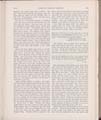
stnic.190807.001.005.jpg English, and settled many little troubles.
She was called friend both by the Indians and soldiers, and her father and she
thought often of old Chief Winnemucca's words and kept peace with their white
brothers.
But just as storm-clouds gather, so whispers came that there would be war between the soldiers and the Piutes. One day some old men were fishing in a lake when cavalry soldiers rode up and fired at them. The Indians ran to their tepees near by, but the soldiers followed and hurt some of them. The captain of the soldiers thought they belonged to a band of bad Indians, and as he spoke only English none could explain. As soon as they understood the cruel mistake, of course, every one was very sorry and did what he could to make it right. One of Sarah's little sisters was badly hurt, but Chief Winnemucca and Sarah only spoke sadly of the "Lake Harney trouble," and were still friendly to the white people.
About this time Sarah came down to Muddy Lake to help her brother Natchez, who was sub-chief there. Near by, Mr. Nugent, the Indian agent, had a big store, where he sold all sorts of things. Now Uncle Sam did not allow agents to sell shot and gunpowder to the Indians, but one day Mr. Nugent did sell some to a Piute Indian. The Indian rode away across the river very happy, but soon one of Mr. Nugent's men met him. He saw the shot and powder and in English told the Indian to give them up. Of course the Indian could not understand and tried to ride on; then the white man fired and shot him. The dreadful news spread among all the Indians and they were very angry, and said Mr. Nugent must die, because they believed he had let the Piute have the powder and then sent his man to shoot him on his way.
Angry Indians rushed to Natchez and frightened women and children gathered around Sarah, but they both mounted their swift ponies and hurried away to save the agent's life if possible. The river at the ford was high. Sarah's pony stumbled in the swift current and threw her off, but her brother helped her to remount, and with wet clothes, on she still galloped to Mr. Nugent's house. When Sarah saw him she cried to him to get away quickly or the Indians would kill him, but he replied that he was not afraid and called his men to get their guns, saying he would show the rascals how to fight. Natchez and Mary begged him to go away till they could quiet the angry Indians, but he would not and told them to leave him. There was nothing else to do, but at the ford they met the angry Indians and stopped them. Natchez called a council in his tepee, and here he and Sarah succeeded in quieting the excitement for a time. Soon afterward word came that two white men herding horses near a place called Deep Wells had been shot by the brothers of the Piute Indian who bought the powder. Then Mr. Nugent went to Fort McDermit to get soldiers to punish the Indians.
Now when the agent asked for soldiers the captain, who was a wise man, decided to know the truth first, so he sent two friendly Indians with a letter to Sarah. This is the letter:
Your agent tells us very bad things about your people killing two of our men. I want you and your brother Natchez to meet me at my place tonight. I want to talk to you and your brother.
(signed) CAPTAIN JEROME, Company M, 8th U. S. Cavalry.The Indians were terrified when Sarah told them what was in the letter and said: "Write, write; you may be able to save us from a dreadful war." Sarah had nothing to write with, but she said: "I will try," and with a sharp-pointed stick and some fish blood scratched off this letter:
My brother is not here. I am looking for him every minute. We will go as soon as he comes in. If he comes to-night we will come some time late in the night.
The messengers were hardly gone when Natchez and his men returned. They took fresh horses and he and Sarah started for the fort. She says: "We went like the wind, never stopping till we got there." When they arrived the wicked agent was with Captain Jerome, but Sarah told the whole story, and the Captain treated them well and promised to do what was right. Then the brother and sister, tired as they were, rode back to their tepee on Muddy Lake. The next day a good officer and some soldiers came and camped near them. The soldiers gave the Indians food and stood guard while Sarah and Natchez held meetings with their people and showed them how kind the soldiers had been. After this, because of the bad ways of Nugent, the commander at Fort McDermit had Natchez and many Indians come to the army post and pitch their tepees. Sarah lived with her brother and his wife, and was the interpreter and peacemaker; and she persuaded the chief, her father, to get together as many as possible of the wandering Piutes and bring them to the fort.
Sarah was sweet and handsome and very quick and able. When she grew older she
married one of the young army officers, but later he went East and she returned
to her own people and
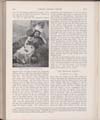
stnic.190807.001.006.jpglived on the Malheur
Indian Reservation. Here she was always called "the Princess" because of her
influence over her people.
It was in 1878 that the Bannock Indians [illustration - "Princess Sarah," or Toc-me-to-ne.] started on the war-path in Idaho and, joining the Malheur Piutes, fought the white people wherever they went. This was called the Piute and Bannock War. The Princess, Sarah Winnemucca, was riding near Fort Lyons, Idaho, when she heard of the trouble. She was on her way to a railway station at Elko, Nevada, hoping to go to Washington to try and have some wrongs put to right on the Malheur agency. When she heard the news she at once turned back and went to the sheep ranch near Boise City, and when I heard she was there I telegraphed to Captain Bernard, who was near by with some soldiers, to ask the "Princess" to go as a messenger of peace to the angry Indians. She said she would go, and, taking with her some true Indian friends, rode, in a day and a half, over one hundred miles. She was approaching the Indian camp in the dark and wondering how to get in unnoticed when she heard a sound. She called and an answering sign showed her it was an Indian. To her surprise and delight it proved to be her own brother, Lee Winnemucca. They had a long talk, and Sarah changed her usual neat dress for an old skirt and Indian blanket, painting her face and pulling a shawl over her head like the squaws. Then she went straight into the Indian camp and to her father's lodge among the fighting warriors, who never thought for a moment of what she was there for. When she saw her father she had a long talk with him in the Piute language, and begged him not to have war with his white brothers. Of course the Bannock Indians could not understand what she said, so they suspected nothing. As soon as it was dark Sarah went out quietly into the woods and waited. One by one Chief Winnemucca and his family with many of his followers stole out of the camp and joined her. Then she guided them to the sheep ranch, and there I met them three days after I had sent my telegram. With her sister-in-law Mattie for a companion, this Indian princess, Sarah Winnemucca, became my guide, messenger, and interpreter till the close of that fearful Piute and Bannock War.
She did our government great service, and if I could tell you but a tenth part of all she willingly did to help the white settlers and her own people to live peacefully together I am sure you would think, as I do, that the name of Toc-me-to-ne should have a place beside the name of Pocahontas in the history of our country.
"THE PRINCESS SARAH" [note *]
EVER since
the defeat of the Piute nation at Steen's Mountain, old Winnemucca had steadily
kept his place with the whites, he, his sons, and Sarah always using their
influence to smooth away troubles. But Sarah's influence was no longer great
because she had so linked herself with the whites; yet her sympathies had always
been with her own people, their sorrows had lain on her heart, and she had
worked faithfully to help them. Her eyes sparkled and her face showed the
delight she felt in recalling her savage childhood. She loved to dwell on the
legends, traditions, feasts, and ceremonies that made up the life of the Indians
before the white man came, and it was with a kind of sadness that she told of
the day when her grandfather and his band were filled with surprise as they saw
the [note]
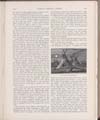
stnic.190807.001.007.jpg first train of
white-topped "prairie wagons" corning slowly toward them across the desert.
She remembered very clearly how her mother hid her by burying her in the sand and whispered to her not to move or those things coming would eat her,—and she added: "That's the sort of babies Indian babies are. I was scared to death, but I wouldn't make a noise or move till my mother came for me, not for anything."
Her grandfather and the warriors crawled to the top of a low hill and watched the "tents" rolling over the plain and drawn by "queer buffalo with long horns." For three days they kept along with this wagon train, but the people in the train never suspected they were thus watched.
Sarah liked to tell us all how the Indians from a distance often watched the passing trains of white traders. On one occasion Winnemucca, after assuring the white men of his peaceable intentions, actually visited their camp. When he left them they gave him a new tin basin and he wondered what on earth that could be for, till. like Don Quixote, he saw, of course, it must be a hat or helmet. So with great dignity he put the tin basin on his head and walked back to his people, who wondered at the beautiful head-piece. and gave him a new name, "The Shining Moon."
Then the women ventured near, dragging the trembling children. Sarah remembered a horrible thing walking toward her which later she. knew was a big man with bushy black whiskers all over his face. (She laughed, and said she had got used to such animals since.) But, of course, among Indians she had never seen a beard, so when this big man took the little Indian girl by the hand, she saw only a great nose and two staring eyes, and she says she must have fainted, for that is all she remembers. But afterward her mother laughed when the little Sarah or Toe-me-to-ne (shell flower) as she was then called, told her of the great "demon owl" that had seized her.
Thus Sarah loved to talk on, for there are few Indians born and bred in savagery who could talk English as Sarah could. She read the magazines and newspapers, wrote official letters, visited Washington as the representative of her people, and was successful in her mission; she taught the Indian children in school; or she painted her face, wrapped a blanket about her and went among her people at the head of our scouts, engaged in active war against part of the tribe.
She returned to her father, and took part in the Bannock and Piute Campaign of 1878. This outbreak was the work of a very young Indian, "Buffalo Horn" by name. He was a Bannock and belonged on the Fort Hall reservation. Only the year before this (1877) he had been our chief of Indian scouts in the campaign against Joseph.
A council was held between the Bannocks and a part of the Piutes although Winnemucca was opposed to a war. While this talk was going on in the Piute camp, the frightened settlers who had escaped flew to the little mining town of Silver City, and here, excited and distrustful, they captured Sarah.
These people made all manner of charges that Sarah was a spy in league with her people. Sarah and her little band were taken from the settlers by one of our officers who passed by in pursuit of the Indians.
When she reached camp she told General Howard her story— how they had ridden to where her father's people were camped.
"I took my brother's blanket," she continued, "and dressed as a squaw. I painted my face. [illustration - An Indian Encampment] When we came near the camp there were a great, great many people and horses. I was afraid. But I went to my father's camp and talked with my people. I told them the soldiers were coming. They said they were really held prisoners by the Bannocks, and could not come away. I told them they must. 'Here,' said I, 'go hide your ponies in the bushes and after dark you can leave.' My brother Lee got a pony for me. After dark we slipped out, a few at a time, and stole away. We all agreed to meet at a certain place.
"Lee and my father and I went out with about fifteen others. We journeyed all
night. At daylight our horses were worn out, and we stopped at the place of
meeting. Presently a man came up just as fast as he could and said my brother
Jerry and some others of the last had been discovered and pursued; that he had
heard much firing and feared all were killed. Then the women began weeping and
moaning, and all was
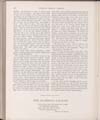
stnic.190807.001.008.jpgtrouble. My brother
Lee said: 'I will go back and die with my people.' My father and I called to
him, but he jumped on his horse and went. He blamed me for being the cause of
all this and said I had brought nothing but trouble on them. Then my father
started to go back. 'For,' said he, 'my son will be killed, then why should I
live?' Then said I to him : 'You must not go back ; here are women and children
depending on you!' Then he waved his hand and said: 'What shall we do? If we try
to go away, the Bannocks will kill us. If we stay, the soldiers will kill us.'
Then he said to me: 'Sarah, go to the soldiers. Tell them where we are, and that
if they do not hurry we shall be killed. Tell them to come to us, come at once.
Spare not your horse, Sarah, but ride night and day.' Then I left him. Mattie
(her sister-in-law) and I came just as fast as ever our horses could travel. Oh,
I am afraid they are all killed ! There was only one gun among them. My father
said: 'Come at once.' Why do you wait ?"
Here Sarah broke down completely. Little Mattie standing behind her listened intently and seemed much frightened.
The refugees were not killed, however, but were brought within our lines in safety. Sarah and her sister-in-law remained with the troops. Sarah acted as guide and interpreter and scout. The two women had their own tent, cared for their horses themselves, helped at the kitchen fire and the mess-table. They rode at the head of the scouts or went off alone on dangerous rides, bringing back valuable information. Not only did they read the trail as an open book, but they knew the Indian character so well that they would foretell the line of march and future plans of the enemy. When prisoners were taken Sarah was of great assistance as interpreter and by spreading her influence induced many to surrender.
But an incident that brought tears more of joy than sadness to the women's eyes was our capture of a "hostile" one hot July day. We had fought the Birch Creek fight and the Indians were running away as fast as they could and we were after them. Their Medicine Men had told them the spirits of dead Indians could fight for them and the whites would surely be overcome, so when they themselves had to give way, they were not as well prepared for flight as usual. Their women and children were with them as they retreated. We drove them through the pine woods and at last lost them as we slowly pushed along the rough trail. Here, in the wildest part of the wilderness we found a fat, pretty little baby. Just think of a chubby little baby lying contentedly all alone in a great wilderness! Its black eyes looked a great deal of surprise at us, but the small enemy did not seem to be "hostile" at heart. But whoever heard of campaigning with a baby. Ah! But that is where the Indian baby is such a jewel. It never has aches or pains or temper; if it has it keeps them to itself.
This baby was a stoic. But it couldn't eat salt pork and hard bread for all that. It was really too young for the campaign. What were a lot of men to do about it?
Well, by the women's help it was duly established at General Forsyth's headquarters, and Sarah hunted up two women among the prisoners and they were mustered in as nurses. The little savage was fed on soaked cracker till condensed milk was procured, and then it fattened on condensed milk till General Forsyth was pardonably proud of the baby, and at the end of the war it was, through his and Sarah's and the nurse "Susie's" exertions, restored to its own mother who allowed herself to be captured and became a prisoner in hopes of finding her little one. And she was as crazy with joy as if that wee brown baby was a genuine white one, and in her gratitude I think she would have taken its hundred nicknames along with the baby, if she could have pronounced them.
At the close of the campaign Sarah accompanied the prisoners of war to their new home on the Simcoe reservation, Washington Territory, and by the tireless perseverance, so characteristic of her, finally succeeded in getting permission for her tribe to return to their former homes.